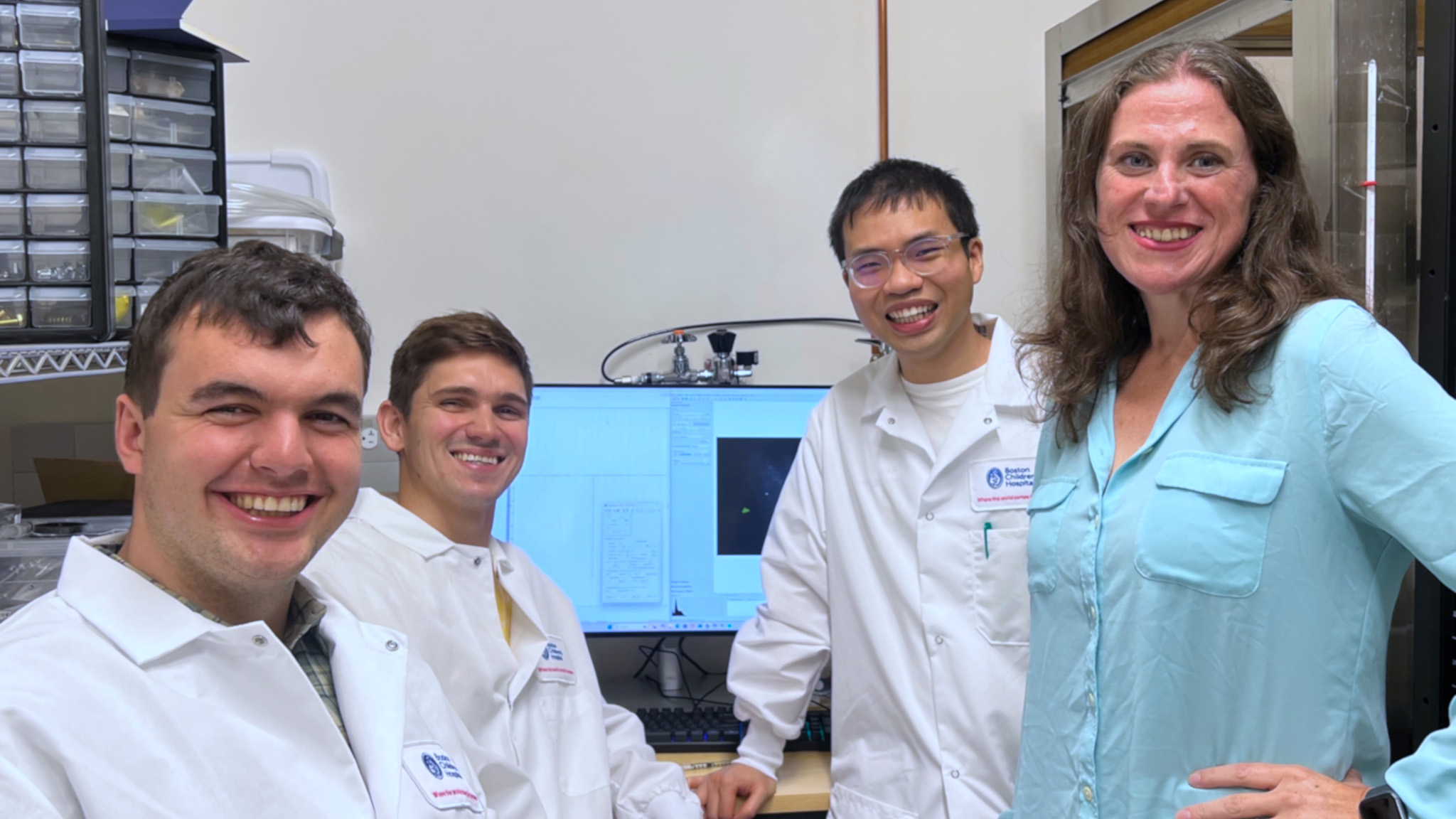Identifying New Therapeutic Approaches Using a Novel Human Fragile X Syndrome Model

Emily Osterweil, PhD
Principal Investigator
Tien Phuoc Tran, PhD
FRAXA Postdoctoral Fellow
Aditi Singh
FRAXA Fellow
Harvard Medical School
Cambridge, MA
2025-2027 Grant Funding: $200,000
Funded by the FRAXA Curative Therapies Fund
Summary
Most Fragile X research has relied on mouse models to explore how silencing of the FMR1 gene and the resulting loss of its protein, FMRP, affect the brain. But mice are not humans.
Dr. Emily Osterweil and her team at Harvard Medical School are using brain cells grown from human tissue to study how Fragile X changes the way neurons work and connect.
This first-of-its-kind model offers insight into Fragile X in the human brain after birth and provides a valuable platform for testing potential new treatments.
The Science
by Emily Osterweil, PhD
Genetic models of Fragile X syndrome (FXS) are essential for finding new treatments. The majority of studies on FXS use the mouse model, which has been highly successful for identifying problems in the brain caused by loss of the FMR1 gene. However, it is possible that there are molecular and cellular consequences of FMR1 loss in human brain that are not present in mouse brain.
This project will use a new human model of FXS brain to investigate how FMR1 loss in human neurons causes problems at the cellular and circuit level. To do this, we will leverage cutting edge technologies in gene editing, single-cell RNA sequencing, and 2-photon (2P) calcium imaging.
This will be the first examination of FMR1 reduction in postnatal human cerebral cortex, which may enable discovery of novel therapeutic strategies.
Meet the Scientist
Dr. Emily Osterweil has been a longtime FRAXA-funded investigator, beginning during her postdoctoral training in Dr. Mark Bear’s MIT lab, where she helped demonstrate that lovastatin could correct excess protein synthesis in Fragile X mice.
She then established her own research program in Edinburgh, serving as a Chancellor’s Fellow and receiving additional funding from FRAXA.
Today, Dr. Osterweil is a faculty member at Harvard Medical School, where her lab seeks to understand how dysregulated protein synthesis and neuronal signaling intersect in Fragile X and related neurodevelopmental disorders.

